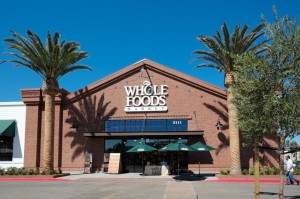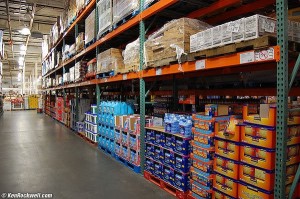Fastest growing retailers
Posted on: August 11th, 2014 by Amy Bolger Following the recession, retailers are growing once again and, increasingly, moving online. In the first quarter of 2014, retail sales were 2.4% higher than the same time the year before, largely helped by a 15% jump in e-commerce sales. Online retail is increasingly accounting for more and more of America’s shopping.
Following the recession, retailers are growing once again and, increasingly, moving online. In the first quarter of 2014, retail sales were 2.4% higher than the same time the year before, largely helped by a 15% jump in e-commerce sales. Online retail is increasingly accounting for more and more of America’s shopping.
Yet not all retailers have adapted to a market where many Americans have less disposable income, and are increasingly choosing to shop online. Other companies, in turn, have become enormously successful by embracing these changes. Based on figures from the National Retail Federation’s (NRF) STORES magazine, compiled by Kantar Retail, 24/7 Wall St. identified America’s Fastest-Growing Retailers.
In 2013, Amazon.com’s U.S. sales rose by 27%, the most of any retailer. For some retailers, such as Tractor Supply Co., part of its continued growth comes from the fact that they sell products Amazon.com simply cannot, such as farm equipment and livestock.
Many other retailers have also moved online, embracing a more-targeted approach in order to set themselves apart from the competition. Bryan Gildenberg, chief knowledge officer at Kantar Retail, told 24/7 Wall St. that this kind of personalized approach, “makes buying much more enjoyable and finding what you want much quicker.”
Some retailers have benefited from the financial struggles facing many Americans. This includes Family Dollar, which targets low income shoppers and had 11% growth in sales in 2013. Others, such as Sherwin Williams, have benefited from more positive developments in the economy. An improving housing market helped the company’s sales rise by 18% last year.
And while many growing retailers are deeply impacted by changes in the economy, others are benefiting from evolving customer tastes. Both Whole Foods and Apple are among the fastest-growing retailers in America, and both have very strong brands aligned with changing consumer spending. Whole Foods’ commitment to organic food and Apple’s exceptional mobile product quality both resonate strongly with customers, who are often willing to pay more for these items.
While many of the fastest-growing retailers have different customers and products, they also have a great deal in common. Gildenberg noted that many retailers aimed “most of [their] energy at the middle of the market.” However, he added that, recently, growth has generally been stronger among companies that target a specific segment of the population.
For example, he noted that Whole Foods and Family Dollar are much more similar than they might look at first glance. “They both target segments of the population that general mass retail, for whatever reason, doesn’t serve as well.”
The addition of new stores can also play an important role in driving sales growth. Excluding Amazon, which is exclusively online, all but one of the fastest-growing retailers increased their U.S. store count in 2013. The one retailer that did not do so, AT&T, has heavily invested in new store designs and has opened or renovated a number of locations. Gildenberg noted that store growth is currently quite strong among more specialized retailers with unique store concepts.
To identify America’s 10 fastest-growing retailers, 24/7 Wall St. reviewed STORES’ Top 100 Retailers report. The report is based on Kantar Retail’s estimates for companies’ retail-only sales, and includes the 100 largest companies by this measure, as well as their estimated number of stores. The companies on our list had the largest percentage gains in U.S. retail sales between 2012 and 2013. Sales figures listed do not include third-party sales. We also excluded Albertson’s and Ascena Retail Group from our list. These companies had retail revenue gains that were largely driven by transformative mergers and acquisitions.


